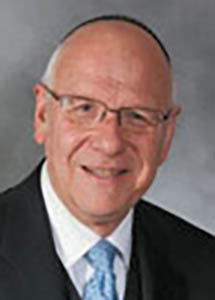
Parashat Lech-L’cha
This week’s haftarah begins at the end of the 40th perek in Sefer Yish’ayahu and extends into the 41st chapter. At first glance, the connection to our parasha is based on a simple phrase found in the 41st chapter. There, the navi tries to comfort the suffering nation by reassuring them that Hashem would never abandon them as they are “zerah Avraham ohavi,” “the seed of Avraham who loved Me.” This mention of our first forefather brings us back to the story of Avraham and Sarah, which begins in the parasha.
And yet, one could rightfully question the choice of Chazal. Certainly, his name appears in the books of other prophets. Surely, we might have preferred a message that did not express the doubts and hesitations of a soon-to-be exiled nation! What is it about this one phrase that captured the imagination of our Rabbis and led them to establish this prophecy as the one to be read for this parasha?
The answer might be found in the description of Avraham. Not that he was the first to “discover” God, nor the first to spread belief in one Supreme Ruler, nor the first to teach divine ethics. Rather, that he was the first to be called “ohavi,” one who loved Me. And indeed that is a fitting sobriquet, for Avraham followed God’s commands for but one reason — he loved Him. Adam was given commands and was told the punishment for not observing them. Noah was given a command and understood what fate awaited him if he did not save himself on an ark. But God told Avraham, simply “Lech l’cha,” “Go forth,” and Avraham went.
Hashem tested Avraham no fewer than 10 times. Sometimes it was through divine command and sometimes through difficult experiences. Bur never did Avraham fail to meet the challenge. Nor did he ever doubt. “Vaya’amen BaShem” “And he believed in God,” the Torah tells us of Avraham. But the navi goes a step further. Yish’ayahu tells us that Avraham’s belief was based upon a deep and overwhelming love of God that Avraham had. Avraham had no past teaching to build upon nor old traditions to learn from. He built his relationship with God by himself, and nurtured a love from his own heart.
So what say we? We have thousands of years of tradition and countless luminaries to learn from. Nonetheless, the prophet reminds us that we too must build our own unique relationship with God, we that must grow and develop throughout our lives and through the trials and challenges life places in our way.
It is a challenge we are urged to meet, for it was our first patriarch who showed us the way. Lech L’cha — go forth and succeed.
By Rabbi Neil N. Winkler










